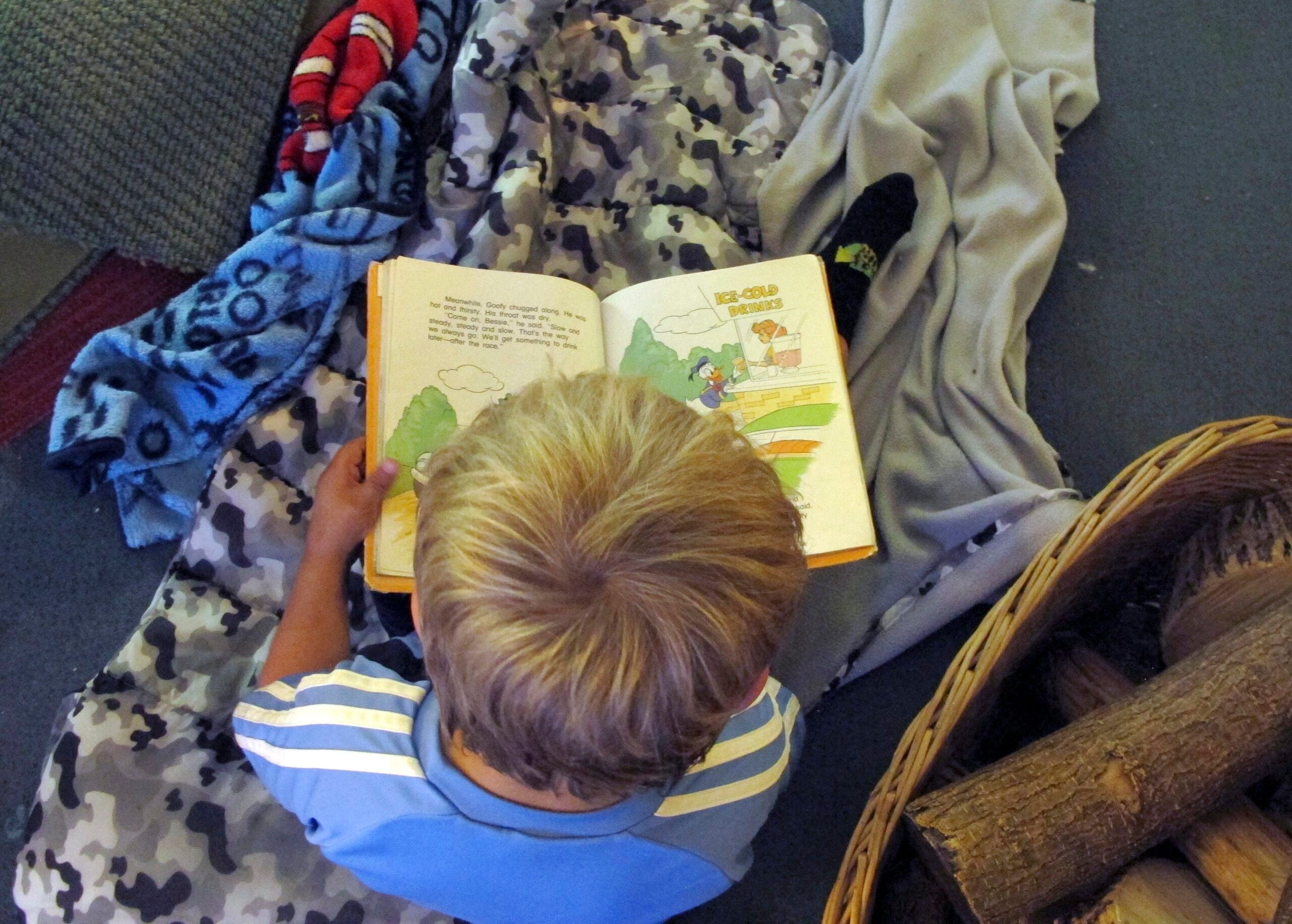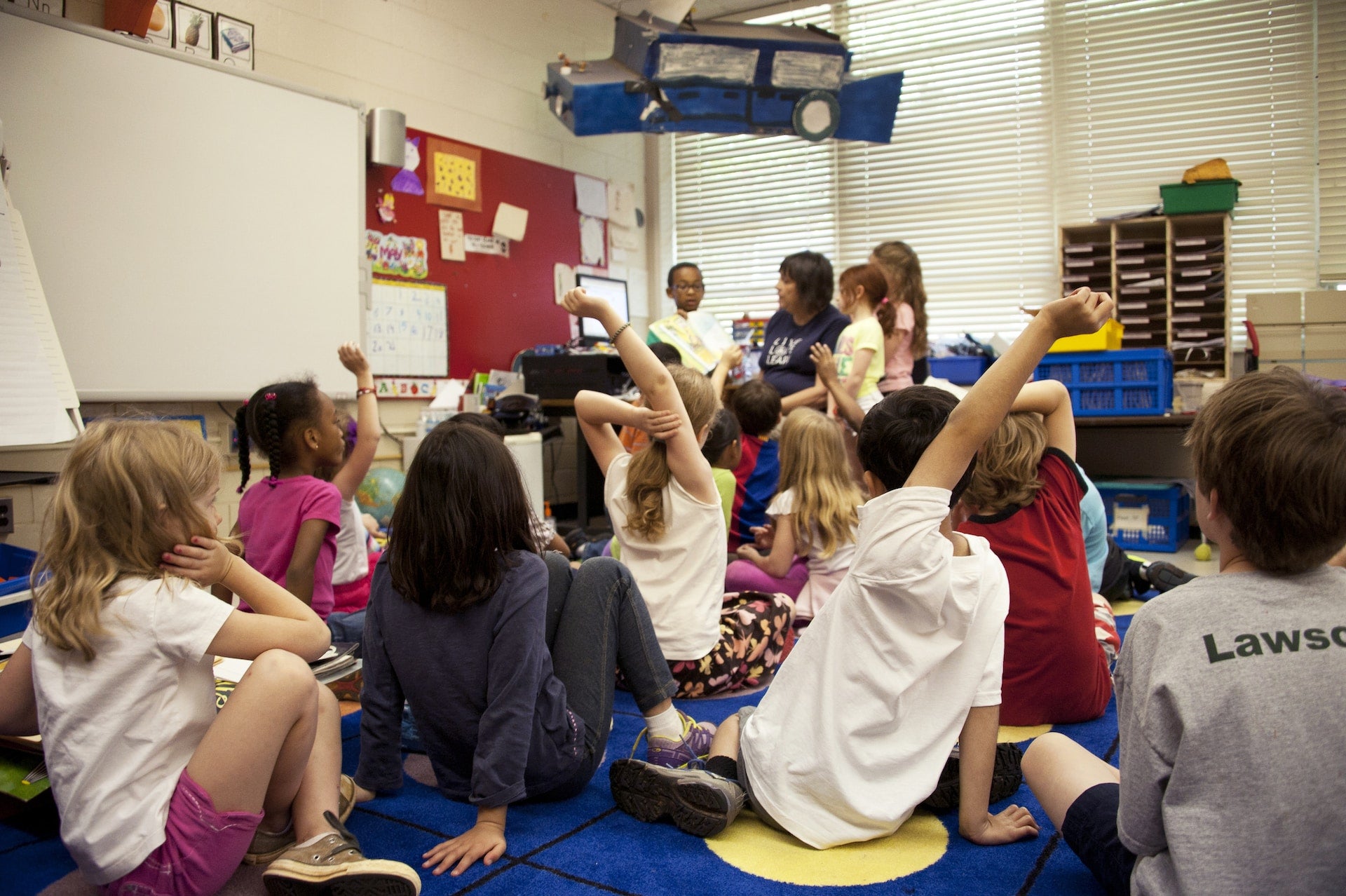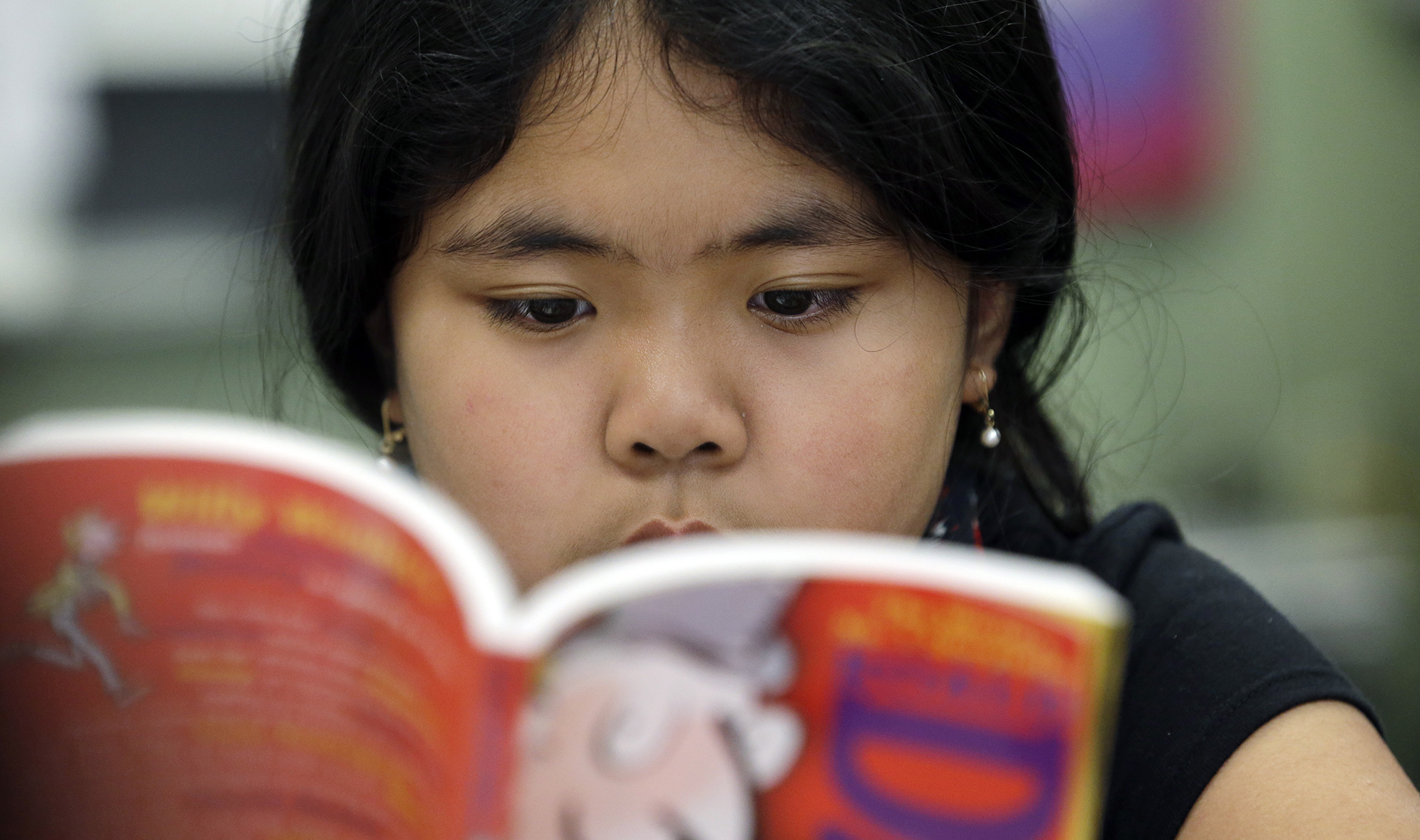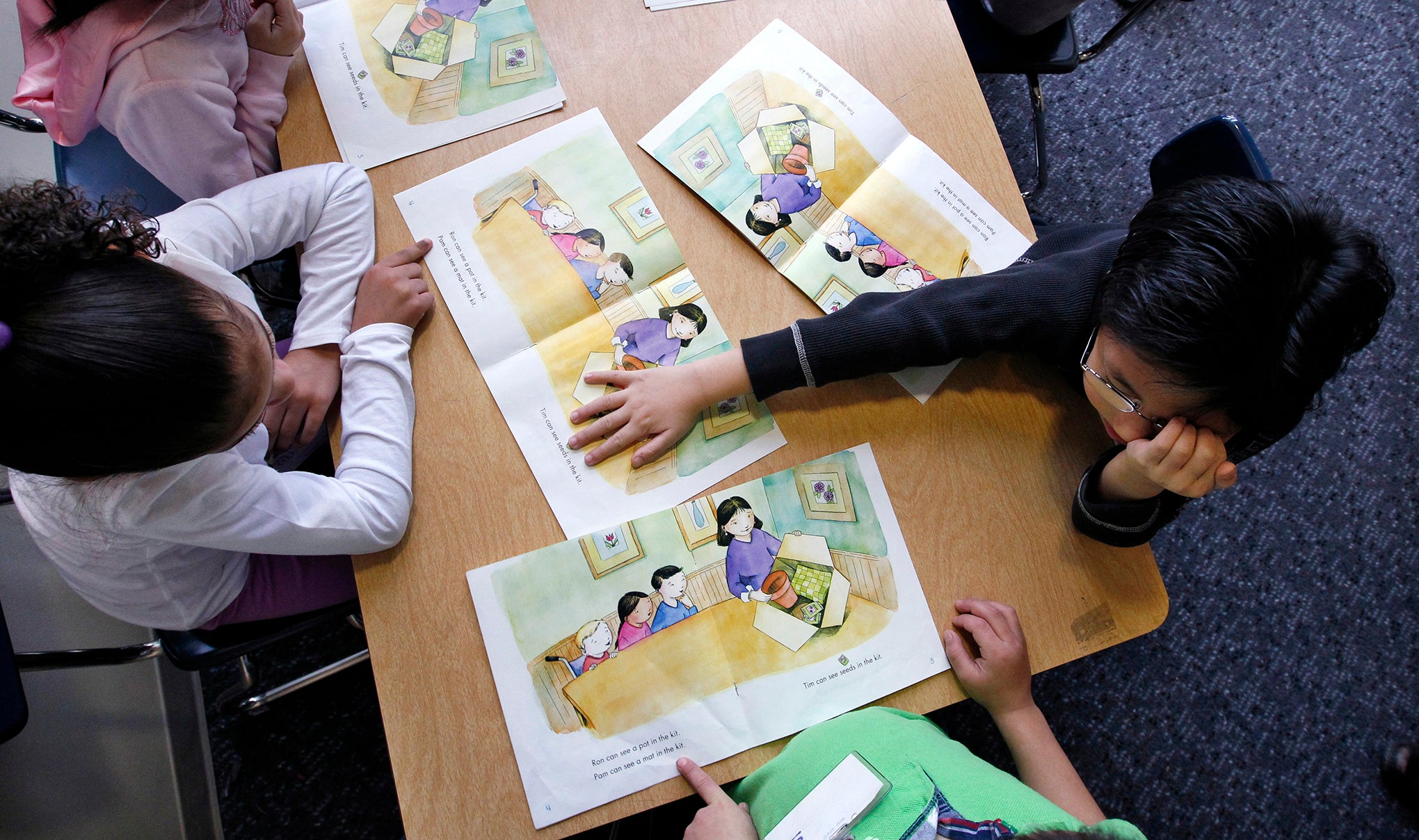A new report from the Annie E. Casey Foundation finds that the reading skills of fourth-grade students in Wisconsin have improved over the past decade, but the gap between students from lower- and higher-income families in the state is growing faster than the national average.
The report found an overall 2-percent increase in reading skills for Wisconsin fourth-graders since 2003. The gap between low- and high-income students, however, widened by almost 30 percent over the same period. Of low-income students, 80 percent are reading below the basic level, compared to 53 percent of high-income students. Only 13 other states saw that gap grow as much as it did in Wisconsin.
Bob Jacobson, of the Wisconsin Council on Children and Families, blames the increase partly on changes in access to daycare centers for low-income families.
Stay informed on the latest news
Sign up for WPR’s email newsletter.
“We have a good program in Wisconsin Shares for making sure that lower-income families do have access to care, but that program has been declining in recent years as various policies have been put in place that make it harder for child care providers to serve those low income families,” said Jacobson.
But the problem can also be traced to what’s happening in the classroom, according to University of Wisconsin-Madison School of Education Professor Cathy Compton-Lilly. She said research she’s done suggests teachers need to tailor their teaching to the needs of children from different economic backgrounds.
“Teachers have to get out into communities find out about kids and their families, find out the resources they do bring and use those as tools for helping kids to learn to read and write,” said Compton-Lilly.
Compton-Lilly said some schools are encouraging teachers to do this and getting volunteers from the community to help tutor children from homes where reading is not a priority. She said others are spending too much time teaching kids how to pass tests and not enough getting to know their children’s families.
Correction: The radio version of this story said the name of the UW-Madison professor quoted was Cathy Lilly-Compton. Her name is actually Cathy Compton-Lilly.
Wisconsin Public Radio, © Copyright 2024, Board of Regents of the University of Wisconsin System and Wisconsin Educational Communications Board.





